|
Books Should Be Free Loyal Books Free Public Domain Audiobooks & eBook Downloads |
|
|
Books Should Be Free Loyal Books Free Public Domain Audiobooks & eBook Downloads |
|
Non-fiction |
|---|
|
Book type:
Sort by:
View by:
|
By: Albert Bigelow Pain | |
|---|---|
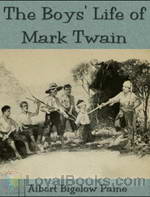 The Boys' Life of Mark Twain
The Boys' Life of Mark Twain
Albert Bigelow Paine was Samuel Langhorne Clemens’ (Mark Twain’s) biographer. He lived with Twain, collecting ideas and material for a biography, for a few years before Twain’s death in 1910. Six years later Paine published this “story of a man who made the world laugh and love him.” For those who have read or listened to Mark Twain’s works, Paine’s work is an invaluable resource to better understand Twain, the stories behind his stories and his life with those he loved and with whom he worked. | |
By: James Frazer (1854-1941) | |
|---|---|
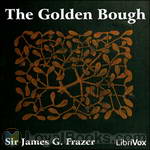 The Golden Bough
The Golden Bough
The Golden Bough: A Study in Magic and Religion is a wide-ranging comparative study of mythology and religion, written by Scottish anthropologist Sir James George Frazer (1854–1941). It offered a modernist approach, discussing religion dispassionately as a cultural phenomenon, rather than from a theological perspective. Although most of its theories have subsequently been exploded (the most famous one being that of the relationship between magic, religion and science), its impact on contemporaneous European literature was substantial... | |
By: Robert Burton (1577-1640) | |
|---|---|
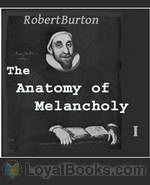 The Anatomy of Melancholy
The Anatomy of Melancholy
The Anatomy of Melancholy is a book by Robert Burton, first published in 1621. On its surface, the book is a medical textbook in which Burton applies his large and varied learning in the scholastic manner to the subject of melancholia (which includes what is now termed clinical depression). Though presented as a medical text, The Anatomy of Melancholy is as much a sui generis work of literature as it is a scientific or philosophical text, and Burton addresses far more than his stated subject. In... | |
By: Theodore Arnold Haultain (1857-1941) | |
|---|---|
 Hints for Lovers
Hints for Lovers
“Hints for Lovers” is a thorough analysis of relationships between men and women, about everything that lovers should know, and delves deep into the psychology of men and women, and the philosophy of courtship, engagement, kissing, making love, marriage, etc, in a light-hearted tone, with refreshing humor. | |
By: Inazo Nitobe (1862-1933) | |
|---|---|
 Bushido: The Soul of Japan
Bushido: The Soul of Japan
Bushido: The Soul of Japan written by Inazo Nitobe was one of the first books on samurai ethics that was originally written in English for a Western audience, and has been subsequently translated into many other languages (also Japanese). Nitobe found in Bushido, the Way of the Warrior, the sources of the virtues most admired by his people: rectitude, courage, benevolence, politeness, sincerity, honor, loyalty and self-control, and he uses his deep knowledge of Western culture to draw comparisons with Medieval Chivalry, Philosophy, and Christianity. | |
By: Sir Wilfred Grenfell (1865-1940) | |
|---|---|
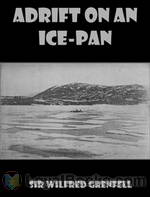 Adrift on an Ice-Pan
Adrift on an Ice-Pan
This autobiographical work describes the author’s harrowing experience caught on a small drifting piece of ice, while crossing a frozen bay by dog team on the Northern Peninsula of Newfoundland. | |
By: J. O. Choules | |
|---|---|
 Young Americans Abroad – Vacation in Europe
Young Americans Abroad – Vacation in Europe
It’s 1851 and the Crystal Palace Exhibition is on in England. English American the Reverend Dr. Choules leaves Newport, Rhode Island with three teenaged students – James Robinson, George Vanderbuilt, and Weld French, who are forced to leave the fourth member of their blue-blooded quartet at home – and all four travelers promise to write to “Dear Charley”, Charles Duston, of later fame. The boys meet the Duke of Wellington, travel down the Rhine, and meet many friends along the way. While the letters are filled with some prejudice against the Catholic religion, they are a product of their time – a sometimes ignorant, but often dazzling, period of our history. | |
By: Walter Scott (1771-1832) | |
|---|---|
 Trial of Duncan Terig, alias Clerk, and Alexander Bane Macdonald for the Murder of Arthur Davis, Sergeant in General Guise's Regiment of Foot
Trial of Duncan Terig, alias Clerk, and Alexander Bane Macdonald for the Murder of Arthur Davis, Sergeant in General Guise's Regiment of Foot
| |
By: Maria Montessori (1870-1952) | |
|---|---|
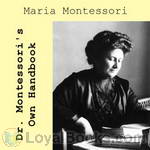 Dr. Montessori's Own Handbook
Dr. Montessori's Own Handbook
This is the authoritative book written by Montessori to describe her methods. It gives an overview of the Montessori Method as developed for 3 to 6 year olds. It is a short work, intended as a manual for teachers and parents, detailing the materials used as well as her philosophy in developing them. "As a result of the widespread interest that has been taken in my method of child education, certain books have been issued, which may appear to the general reader to be authoritative expositions of the Montessori system... | |
By: John George Nicolay | |
|---|---|
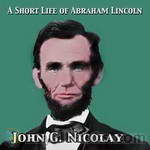 A Short Life of Abraham Lincoln
A Short Life of Abraham Lincoln
John G. Nicolay was Abraham Lincoln’s private White House secretary. With assistant secretary, John Hay, he wrote the two volume definitive biography of Lincoln, “Abraham Lincoln, a Biography.” Although this is a condensation by Nicolay of that biography, it is still a sizable work and a fairly thorough treatment of the life of the 16th president of the United States. | |
By: Alfred North Whitehead (1861-1947) | |
|---|---|
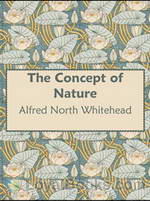 The Concept of Nature
The Concept of Nature
In The Concept of Nature, Alfred North Whitehead discusses the interrelatedness of time, space, and human perception.The idea of objects as ‘occasions of experience’, arguments against body-mind duality and the search for an all-encompassing ‘philosophy of nature’ are examined, with specific reference to contemporary (Einstein, with whose theory of relativity he has some complaints) and ancient (Plato, Aristotle) approaches. | |
By: Charles Mackay (1814-1889) | |
|---|---|
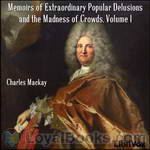 Memoirs of Extraordinary Popular Delusions and the Madness of Crowds
Memoirs of Extraordinary Popular Delusions and the Madness of Crowds
The book chronicles and vilifies its targets in three parts: “National Delusions”, “Peculiar Follies”, and “Philosophical Delusions”.The subjects of Mackay’s debunking include alchemy, beards (influence of politics and religion on), witch-hunts, crusades and duels. Present day writers on economics, such as Andrew Tobias, laud the three chapters on economic bubbles. | |
By: Frances Calderón de la Barca (1804-1882) | |
|---|---|
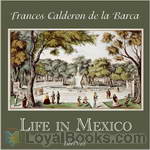 Life in Mexico
Life in Mexico
FRANCES CALDERON DE LA BARCA, born in Edinburgh, 1804, the daughter of William Inglis. After her father’s death she settled in America, where she married the Spanish diplomat, Don Angel Calderon de la Barca. She accompanied him on his various appointments to Mexico, Washington, and finally to Madrid, where she was created Marquesa de Calderon de la Barca by Alfonso XII and died in 1882. The present work is the result of observations made during a two years’ residence in Mexico, by a lady, whose position there made her intimately acquainted with its society, and opened to her the best sources of information in regard to whatever could interest an enlightened foreigner... | |
By: John R. Hale | |
|---|---|
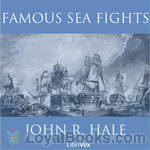 Famous Sea Fights
Famous Sea Fights
I propose to tell in non-technical and popular language the story of some of the most remarkable episodes in the history of sea power. I shall begin with the first sea-fight of which we have a detailed history—the Battle of Salamis (B.C. 480), the victory by which Themistocles the Athenian proved the soundness of his maxim that “he who commands the sea commands all.” I shall end with the last and greatest of naval engagements, the Battle of Tsu-shima, an event that reversed the long experience of victory won by West over East, which began with Salamis more than two thousand years ago... | |
By: Henry Cabot Lodge (1850-1924) | |
|---|---|
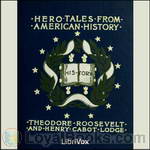 Hero Tales from American History
Hero Tales from American History
Its purpose … is to tell in simple fashion the story of some Americans who showed that they knew how to live and how to die; who proved their truth by their endeavor; and who joined to the stern and manly qualities which are essential to the well-being of a masterful race the virtues of gentleness, of patriotism, and of lofty adherence to an ideal. It is a good thing for all Americans … to remember the men who have given their lives in war and peace to the service of their fellow-countrymen, and to keep in mind the feats of daring and personal prowess done in time past by some of the many champions of the nation in the various crises of her history. | |
By: Isabella L. Bird (1831-1904) | |
|---|---|
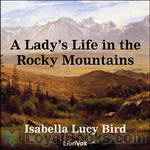 A Lady's Life in the Rocky Mountains
A Lady's Life in the Rocky Mountains
Isabella Bird began travelling while in her early twenties to help alleviate illness that had plagued her since childhood. She was a single woman in her early forties when she made her treck through the Rocky Mountains. A Lady’s Life in the Rocky Mountains details this fascinating account of her travels through a series of letters written to her sister, Henrietta. These letters are filled with beautiful, vivid descriptions of the scenery, the people she encountered, the way of life, and a mountain man named Jim Nugent, that was as rough as they come, but a complete gentleman with Ms... | |
By: Jeanne Marie Bouvier de la Motte Guyon | |
|---|---|
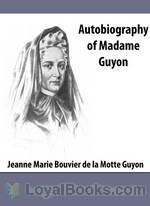 Autobiography of Madame Guyon
Autobiography of Madame Guyon
Jeanne-Marie Bouvier de la Motte-Guyon (commonly known as Madame Guyon) (April 13, 1648 – June 9, 1717) was a French mystic and one of the key advocates of Quietism. Quietism was considered heretical by the Roman Catholic Church, and she was imprisoned from 1695 to 1703 after publishing a book on the topic, A Short and Easy Method of Prayer. This translation is by Thomas Taylor Allen was first published in 1897. Allen’s dates are unknown. | |
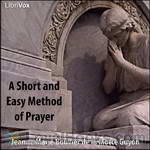 A Short and Easy Method of Prayer
A Short and Easy Method of Prayer
Originally published in 1685, Madame Guyon’s A Short and Easy Method of Prayer is considered a classic of Christian mysticism, influencing great writers and speakers such as John Wesley and Charles Spurgeon. In it, Madame Guyon carefully and briefly sets out her ‘unmethodical method’ by which any and all can commune with God at any time and under any circumstances. | |
By: Sir Henry Morton Stanley (1841-1904) | |
|---|---|
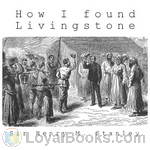 How I Found Livingstone
How I Found Livingstone
Sir Henry Morton Stanley is famously quoted for saying “Dr Livingstone, i Presume?”. Born in Wales, he migrated over to the United States at the age of 18, and eventually became an overseas correspondent for the New York Herald. In 1869 Stanley was told by James Gordon Bennett Jr to find Livingstone, a scottish missionary and explorer, who was lost in central Africa. When Stanley commented on the cost Bennett’s reply was: “Well, I will tell you what you will do. Draw a thousand pounds now; and when you have gone through that, draw another thousand, and when that is spent, draw another thousand, and when you have finished that, draw another thousand, and so on; but, FIND LIVINGSTONE. | |
By: Frank Harris | |
|---|---|
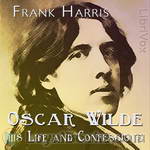 Oscar Wilde: His Life and Confessions
Oscar Wilde: His Life and Confessions
Consumers of biography are familiar with the division between memoirs of the living or recently dead written by those who “knew” the subject more or less intimately, and the more objective or scholarly accounts produced by later generations.In the case of Wilde, as presented to us by Frank Harris, we are in a way doubly estranged from the subject. We meet with Oscar the charismatic talker, whose tone of voice can never be reproduced – even if a more scrupulous biographer had set down his words accurately – and we are perhaps already aware of him as Wilde the self-destructive celebrity who uneasily fills the place of the premier gay icon and martyr in our contemporary view... | |
By: Oliver Optic (1822-1897) | |
|---|---|
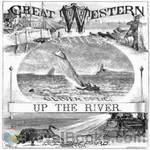 Up the River
Up the River
Up the River is the sixth and last of “The Great Western Series.” The events of the story occur on the coast of Florida, in the Gulf of Mexico, and on the Mississippi River. The volume and the series close with the return of the hero, by a route not often taken by tourists, to his home in Michigan. His voyaging on the ocean, the Great Lakes, and the Father of Waters, is finished for the present; but the writer believes that his principal character has grown wiser and better since he was first introduced to the reader... | |
By: Alexandre Exquemelin (c. 1645-1707) | |
|---|---|
 The Pirates of Panama
The Pirates of Panama
This volume was originally written in Dutch by John Esquemeling, and first published in Amsterdam in 1678 under the title of De Americaeneche Zee Roovers. It immediately became very popular and this first hand history of the Buccaneers of America was soon translated into the principal European languages. The first English edition was printed in 1684. Esquemeling served the Buccaneers in the capacity of barber-surgeon, and was present at all their exploits. Little did he suspect that his first hand observations would some day be cherished as the only authentic and true history of the Buccaneers and Marooners of the Spanish Main... | |
By: George Bernard Shaw (1856-1950) | |
|---|---|
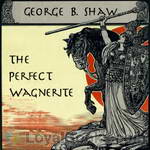 The Perfect Wagnerite
The Perfect Wagnerite
The Perfect Wagnerite: A Commentary on the Niblung's Ring (originally published London, 1898) is a philosophical commentary on Richard Wagner's Der Ring des Nibelungen, by the Irish writer George Bernard Shaw. Shaw offered it to those enthusiastic admirers of Wagner who "were unable to follow his ideas, and do not in the least understand the dilemma of Wotan." He interprets the Ring in Marxian terms as an allegory of the collapse of capitalism from its internal contradictions. Musicologically, his... | |
By: Henri Poincaré (1854-1912) | |
|---|---|
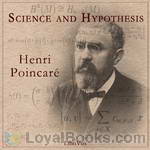 Science and Hypothesis
Science and Hypothesis
Jules Henri Poincaré (1854–1912) was one of France’s greatest mathematicians and theoretical physicists, and a philosopher of science. As a mathematician and physicist, he made many original fundamental contributions to pure and applied mathematics, mathematical physics, and celestial mechanics. He was responsible for formulating the Poincaré conjecture, one of the most famous problems in mathematics. In his research on the three-body problem, Poincaré became the first person to discover a chaotic deterministic system which laid the foundations of modern chaos theory... | |
By: Gilbert White (1720-1793) | |
|---|---|
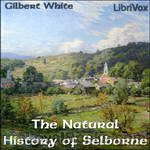 The Natural History of Selborne
The Natural History of Selborne
The Reverend Gilbert White was the curate of the village of Selborne, a village in Hampshire, from 1784 to his death in 1793, living most of his life in the village. The book is in the form of a collection of letters to two friends, discussing the natural history of the areas that he knew, and natural history in general. White’s intense curiosity and his love for the world about him flow through his simple, straightforward style, and a gentle sense of humour colours many of his anecdotes. | |
By: Edward R. Shaw (1855-1903) | |
|---|---|
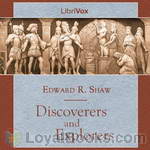 Discoverers and Explorers
Discoverers and Explorers
Tales of the brave and daring explorers that ventured into the unknown “Sea of Darkness” where it was thought monsters and angry gods lived. They dared to sail near the equator which was thought to have such intense heat that it would boil the ocean water. It was also commonly thought at the time that the world was flat, and the ships would fall off the face of the earth. These men overcame these fears to explore and discover new lands. | |
By: William Beatty, M.D. (1773-1842) | |
|---|---|
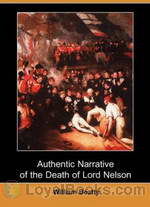 The Death of Lord Nelson
The Death of Lord Nelson
“The Surgeon of the late illustrious Lord NELSON feels himself called upon, from the responsible situation which he held on the eventful day of the 21st of October 1805, to lay before the British Nation the following Narrative. It contains an account of the most interesting incidents which occurred on board the Victory. (Lord NELSON’s flag-ship) from the time of her sailing from England, in the month of September, till the day of battle inclusively”. – William Beatty | |
By: Owen Wister (1860-1938) | |
|---|---|
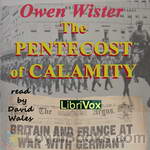 The Pentecost of Calamity
The Pentecost of Calamity
Nonfiction. Appalled by the savagery of World War I, Owen Wister in 1915 published an attempt to move the United States out of neutrality into joining the Allies against Germany. His aim was the quicker defeat of that nation. (Wister: “the new Trinity of German worship – the Super-man, the Super-race, and the Super-state.”) He was but one of many literary personages who joined in this effort. A moving quote: “Perhaps nothing save calamity will teach us what Europe is thankful to have learned again – that some things are worse than war, and that you can pay too high a price for peace; but that you cannot pay too high for the finding and keeping of your own soul.” | |
By: Arthur William Knapp (1880-1939) | |
|---|---|
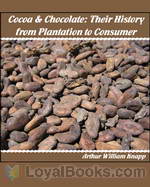 Cocoa and Chocolate: Their History from Plantation to Consumer
Cocoa and Chocolate: Their History from Plantation to Consumer
As that heavenly bit of chocolate melts in our mouths, we give little thought as to where it came from, the arduous work that went in to its creation, and the complex process of its maturation from a bean to the delicacy we all enjoy. This “little book” details everything you have ever wanted to know (and some things you never knew you wanted to know) about cocoa and chocolate from how the trees are planted and sustained to which countries produce the most cacao beans. Do cacao beans from various... | |
By: Thomas Gilbert Pearson (1873-1943) | |
|---|---|
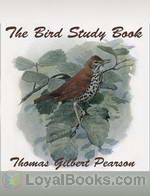 The Bird Study Book
The Bird Study Book
Do you enjoy birdwatching? Would you like to learn a little more about the early conservations efforts to protect wild birds? In the Preface to The Bird Study Book, Pearson tells us “This book was written for the consideration of that ever-increasing class of Americans who are interested in acquiring a greater familiarity with the habits and activities of wild birds. Attention is also given to the relation of birds to mankind and the effect of civilisation on the bird-life of the country. ” An avid ornithologist, T... | |
By: Ruth Edna Kelley | |
|---|---|
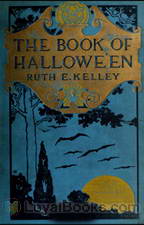 The Book of Hallowe'en
The Book of Hallowe'en
This book is intended to give the reader an account of the origin and history of Hallowe’en, how it absorbed some customs belonging to other days in the year,—such as May Day, Midsummer, and Christmas. The context is illustrated by selections from ancient and modern poetry and prose, related to Hallowe’en ideas. | |
By: K. Langloh Parker | |
|---|---|
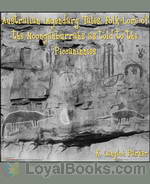 Australian Legendary Tales Folk-Lore of the Noongahburrahs As Told To The Piccaninnies
Australian Legendary Tales Folk-Lore of the Noongahburrahs As Told To The Piccaninnies
A Collection of Australian Aboriginal Legendary Folk-Lore Tales, legends of the Narran tribe, known among themselves as Noongahburrahs. | |